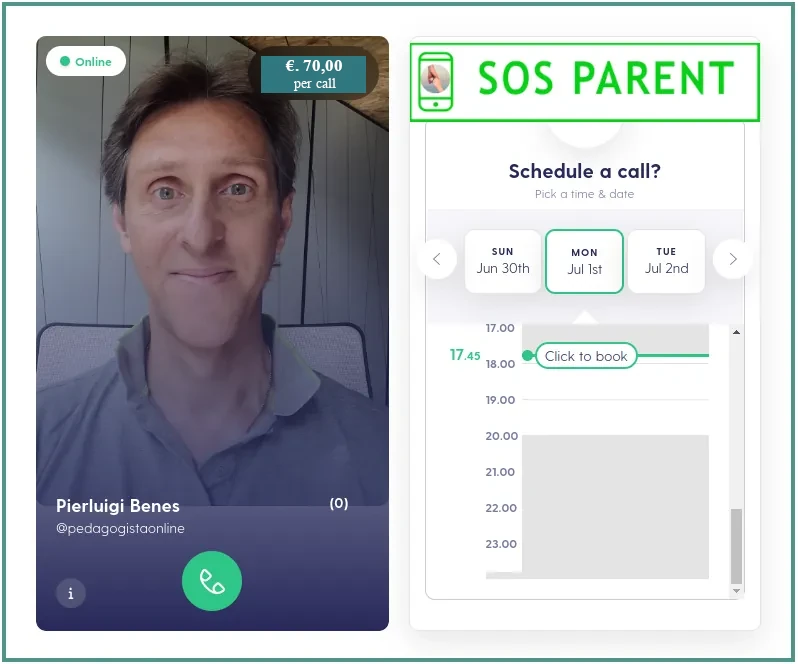
It’s not always simple to understand how to handle a tantrum of chils. The tantrums of children often cause high levels of anxiety in parents; in fact, the combination of “child tantrums” is well established in the minds of many people. If you are a mother or father, you will have faced your child’s tantrums many times; in some cases, you may have found it difficult to manage them, or ineffective.
For example, you may have tried raising your voice to make them stop, but you may have realized that this approach may not be enough. Out of exhaustion, you may have chosen to accommodate your children’s requests and give them a new toy as a gift; but this may not have always been the solution to save you difficulties in the future.
If that’s the case, then you’ve come to the right place; I’ll explain how to behave in the future to get better results with your child than you’ve experienced so far. If you’re not a parent yet but are about to become one or would like to be, this guide will help you: empathize with a fairly common dynamic in a mother’s or father’s life; not to be anxious about associating two concepts like tantrums and children; understand how to deal with tantrums effectively.
In fact, what I will present to you now is a simple educational strategy that will help you understand how to handle tantrums of children and will be very useful for you to regain dialogue with your child in his/her moments of crisis. To make the discussion as comprehensible as possible, I will use a very simple example. Let’s begin!
1. Tantrum behavior: the sense of inadequacy it generates
2. Tantrum behavior: the educational mechanism that gets stuck
3. Tantrum behavior: the typical reaction of many parents to the child’s demands
4. The approach to adopt for intervening with serenity and effectiveness
5. Explanation of the effects you will achieve with this approach
6. What punishment to give the child (or rather, how to sanction inadequate behavior)
1. Tantrum behavior: the sense of inadequacy it generates
Giovanni insists on having a new toy that has caught his attention so much, but his mother doesn’t want to buy it; so, the child starts to cry and shout in protest in the middle of the street.
His mother replies that it’s not possible and tells him to move, because they have to go home and there are many things to do. However, the son doesn’t care at all, because he wants the toy he just saw in the window at all costs; so he continues to shout and thrash on the ground, among the people passing by. The mother takes him by the arm and drags him away with difficulty, telling him to stop; but he sets his feet and cries even more nervously.
The father approaches and repeats the same things to the son, telling him to move because they have to go home immediately. Between tears and pushes, the child screams that he won’t move until he gets the toy he saw. This is just one example of many that could be made about tantrum at any age of the child. What can a parent do in this situation with a tantrum behavior? This is the question that many ask themselves sooner or later when their child starts to have tantrums and strongly opposes the requests of mom and dad.
In the face of tantrum, parents often panic, because they don’t know how to handle situations that are so emotionally charged and, in some cases, quite embarrassing.
It happens that episodes like this do not only happen within the home, but they also repeat in various situations outside the home: during a walk, inside an office, or while shopping at the supermarket.
Similar behaviors can create a strong sense of discomfort in parents, because it’s hard to control oneself and not react to a child’s provocations. This discomfort is related to the sense of inadequacy that the parent creates if they fail to find right strategies to make the child desist. Often it is very difficult to identify effective ones, because the moment, time, and circumstances catch the parent off guard.
2. Tantrum behavior: the educational mechanism that gets stuck
It is clear that there are difficulties that must be faced when your child is having a tantrum. The child is in crisis because he would like to get something, but since it is not possible for him to have what he wants, the prohibition creates a very intense tension for him. When he is very young, in fact, he is not yet capable of comforting himself. He needs his mother or father to do for him what he cannot do independently. This allows him to receive support or at least find useful resources to overcome that difficulty.
However, when he is older, he is probably able to reason for himself, but the habit of interacting in a similar way with his parents can lead him to use this strategy as a practice and with particular tenacity. Even just out of boredom. If this behavior continues into adolescence, when children do not respect their parents, it becomes quite complex to recover the situation.
If these pressures are continuous, they generate a certain impatience in parents and put the educational dynamic in crisis. Also because in the moment when a tantrum is expressed, in many cases they would have many other more urgent things to do: to go shopping, to conclude an important phone call, to drive, to talk to an employee in an office, to pay a bill, and a thousand other things. In my professional experience, I have often seen parents to be in similar situations with their children, frightened in opposing a refusal to the child for fear of having to face his reactions; so I know how difficult it can be to handle a child who demands to have what he wants immediately.
The greatest risk of not managing these episodes adequately is to flatten too much to the child’s requests and passively succumb to their strong demands. When this habit is usual, the child begins to realize that he can easily get the things he wants and can start insisting more and more, as if it were a game. A similar behavior arises because the functioning of the child at a young age depends heavily on the need to satisfy his own personal pleasure; over time, however, he learns that this is not always possible and begins to make a more objective examination of reality. This examination, however, also depends in part on how he is accompanied by his parents to realize this delicate step.
What I am going to explain to you shortly is a possible strategy with which you can enrich your educational intervention to effectively manage your child’s tantrum and avoid having such phenomena repeat often in your experience, or having them occur with such intensity that you lose control of the situation. Now, therefore, I want to show you how many parents react when the mechanism we just saw breaks down.
3. Capricci bambini: la reazione abituale dei genitori di fronte alle pretese del bambino
As a child, you have surely also made a few mistakes and been punished by your parents. Many times you have also seen other children being punished, and for example, being denied the opportunity to watch TV for a few days, due to damage caused or for not doing homework; as well as not playing with a friend or doing something very coveted for a few days. Perhaps you have also acted similarly towards your child; this is a relatively common thing.
Sometimes the “punishments” assigned to children for their improper behaviors are also much more severe. It used to be that children were sent to bed without dinner; today it is probably less common, but it is certainly the case that some parents raise their voices very loudly with their child, and sometimes even their hands. Then, it is not so uncommon for parents to use these strategies, such as yelling, hitting and punishment, as if they were real educational tools, when they do not know what other strategies to adopt to manage the relationship with the child, especially if lively. In many cases, you have seen that similar strategies are of no use, since the problem reoccurs; and this is enough to make you understand that solutions so drastic and rigid risk being completely ineffective if your goal is to calm your child and yourself. Let alone, then, if your goal is to raise a solid child.
Let’s add another aspect: in addition to not serving in many circumstances, these strategies can even fuel the child’s opposing attitude towards mom and dad, if he realizes that the parent’s strategy is so gross.
In fact, from a communicative point of view, such a rigid mode only transmits to the child the idea that there are no other arrows in their bow; except for the cold comfort of raising their voice even higher. Moreover, this mode pushes the parent towards a dead end that leads nowhere.
Now I’ll explain how you can proceed in a more appropriate and effective way, and I’ll show you step by step how to think about it.
First of all, I tell you something. Do you know about punishments, penitences and spankings to get the child to behave better and stop making tantrums? Forget about them, you can do very well without them, getting much more than these systems do. Continue reading and I will explain how to do it.
4. The approach to adopt for intervening with serenity and effectiveness
Let’s start by saying that, in the face of tantrum behavior, the first question that parents should ask themselves is: has my child understood why it’s not okay for him to do what I’m denying? Has he understood that I care about preventing it from happening again? And that I’m sorry if his behavior continues, because then he’ll miss out on other opportunities?
If I realize that I’m not communicating this message to my child, it’s very likely that he’ll feel bad about my attempts to make him responsible; so it’s better if I stop to think if I’m fueling the deadlock against him. In the example I gave earlier, the parents could have explained to Giovanni that there wasn’t time for that at that moment; or they could have added that they had just bought him one recently and it would be excessive to buy another one right away; or that maybe that toy was too expensive. In short, they could have clearly represented the reason for their prohibition to the child in a simple and transparent form, rather than hiding behind a categorical imperative like: «I won’t buy it because you can’t have!»
Once this first hurdle has been overcome, and one realizes to have explained the reasons and what wants from the child clearly (which is not always a given), then one can ask oneself a second question: have I already implemented a strategy to help him overcome the problem, before scolding?
If the answer is no, I’ll make an effort to find a way to do so, in order to help him get out of the dead end he’s locked himself into more easily. It must be remembered that the younger the child is, the fewer strategies he has to get out of the corner he’s retreated into with his stubbornness; therefore, it’s up to me as an adult to make the first move to help him overcome the impasse. If the parental couple manages to work together on this aspect, the effects are even more immediate. Going back to Giovanni’s example, it could have been added that, although the toy was too expensive, it could be a nice gift for him on a good occasion, like his birthday, or Christmas or another special moment.
By doing this, you help the child learn to procrastinate satisfying his needs, without explicitly refusing his request; a habit like this allows the child to handle tension better and to acquire great resilience in the face of conflicts. In this way, you will soon see benefits, but it will also have a significant multiplying effect on the quality of the relationship that will be established between you during the delicate pre-adolescent and adolescent phase.
If he persists in stirring up and demanding, despite my having acted with these precautions, then I ask myself a third question: what is the most appropriate way to induce him to modify his behavior?
With a young child who throws themselves to the ground crying after being told that they can’t do what they want, it is usually enough to simply pick them up carefully, distracting them. If this doesn’t work because they have become older and are very obstinate, or because their behavior has caused significant consequences (for example, damage), the child should certainly be made responsible for what has happened, but in the appropriate way. How to do it? Now we’ll see.
If after yet another reminder, the child continues to have tantrums and yell louder without paying attention to you, lower your voice and make it clear to them in a normal tone, albeit regretful, that their behavior is excessive and that you are now not only disappointed in how they are behaving, but you also want them to show that they can control themselves better.
Of course, it may also be that they don’t take what you say into account at all, but that’s not a problem for you.
Your main goal is not to achieve temporary momentary successes, but to ensure a stable and lasting educational success over time, leading to an effective educational relationship and, possibly, a prosperous future for your child. Educational success is built day by day with the policy of small steps. So, explain to them that to make up for what they did, from that moment on they will have, for example, five minutes less a day of television or video games or playing with friends or something they particularly care about. And make it clear that this will be so until you see that their behavior has really improved.
It may be that after this they challenge you again, but this reaction should not worry you either; because you don’t want to lower your relationship to a childish competition, but rather to give your child an effective adult response, a response that helps them grow.
Well, now that you understand the strategy to adopt and the effects you can achieve, I’ll explain to you the reasons why I suggest you follow this line.
5. Explanation of the effects you will achieve with this approach
The low tone of voice provides the child with a reference point to understand the right wavelength on which to tune the communication with you. When they lose control, in fact, children have more difficulty than adults in regulating their own behavior, so it is up to us to provide them with a reference point so that they can regain their balance. If your objection is that the child does not hear our words, I respond that the fact that he or she understands them is secondary to the opportunity to understand that they must regain control of their emotions: if I lower the volume of my voice, I am already communicating something essential, that is, that they should try to control themselves. Just like I do. With my behavior, in fact, I am showing that, unlike them, I have the situation under control and I do not get involved in a skirmish; so I appear confident to their eyes.
If he has provoked you to this point, disappointment is the feeling that you are probably experiencing in that situation; well, do not hesitate to convey it to him. It is very important, in fact, to show the child that his actions have an emotional impact on us, in order to make him understand exactly what effect his behavior produces. You are not a spineless person if you show your child that he has hurt you; on the contrary, you show you are strong and you educate him to govern his emotions in the most effective way possible, through your real example.
He may still pour more anger on you considering that he has hurt you, in which case I invite you to show him your discomfort even more for what he is saying to you; if you get the child used to understanding his emotions and those of others, you help him to greatly strengthen his ability to self-control.
A strong relationship between parent and child is based on trust, so if the child has lost our trust with his behavior, it is up to him to regain it; and he must be put in a position to do so. Without any spirit of revenge on our part, but only with the explicit intention of making him respond, with his own abilities, for what he has done.
Our educational task as parents is to gradually put the responsibilities that belong to them on their shoulders; that’s why they must be the ones to show that they know how to respond to the repair request that we have made. Not only that. Trying to regain our trust has a cost for them and to support them they must act in an autonomous way, compatible with their age and development. Let’s see now how to put them in front of their responsibilities.
6. What punishment to give the child (or rather, how to sanction inadequate behavior)
I said five minutes, not an hour. I also said until they improve, without specifying one, two, three, or ten days. I suggested this approach because otherwise the child would take it as a challenge, which in many cases would be fruitless for both.
I prefer, in fact, to suggest putting a small responsibility on their shoulders (which I don’t call punishment, but a sanction or repair of inadequate behavior) and for an indefinite time, so that the child doesn’t focus on a deadline, distracting themselves from the real goal, which is to repair what they did.
In this way, we do not burden them with something too heavy, but we give them the possibility to regain the situation; even instantly, if they are really intended.
Clearly, it may happen that they immediately show us that they know how to behave just to avoid the sanction/repair that we would attribute to them, and maybe immediately after doing the same tantrum; then it will be our duty to explain that they have taken advantage of our trust and, if necessary, to act accordingly, always with the same criteria.
It may happen that they want to provoke us even more. Don’t worry, then the five minutes can increase, becoming six, seven, or ten; but always growing in small steps.
They may insist again, but they will find themselves in the condition of tying his own hands, always more and uselessly, for a period of time that is not at all discretionary to define for them; unless they can have an adequate attitude. In the long run, this vicious circle makes them less need (and the possible pleasure) to oppose that sensible rule that we have indicated.
7. Instructions for use
You can use this attitude in any educational situation; however, what I want to point out is not to use it as a recurring practice, because this is not the right way to build a dialogue with your child day by day.
A strategy like this can only serve to recover a situation that has taken a bad turn, and to put it within a framework inspired by the general principles of appropriate educational intervention.
But if you have to resort to a solution like this, to regain control of a difficult situation, you will notice that the next time your child falls into a similar behavior, it will be much easier to come out of it: both for you and for him.
Based on these reflections, to those who tell that you must raise your voices or hands with children, I reply that it is only necessary to talk instead; calmly, with affection, but also with determination where necessary. Anyway, always with an attitude that is adequate to understand each other, and with the desire to help.
If the attitude of dialogue is the normal practice in your way of discussing with your child, I assure you that excesses of anger and frustration will not even touch the relationship between you and your child.
In addition to managing the tantrums of children, if you would like to learn other things about how to help them grow strong and self-confident, so as not to get more frustrated with them, you can download the free Ebook that I leave at your disposal to learn how to avoid the grossest mistakes made by parents.





